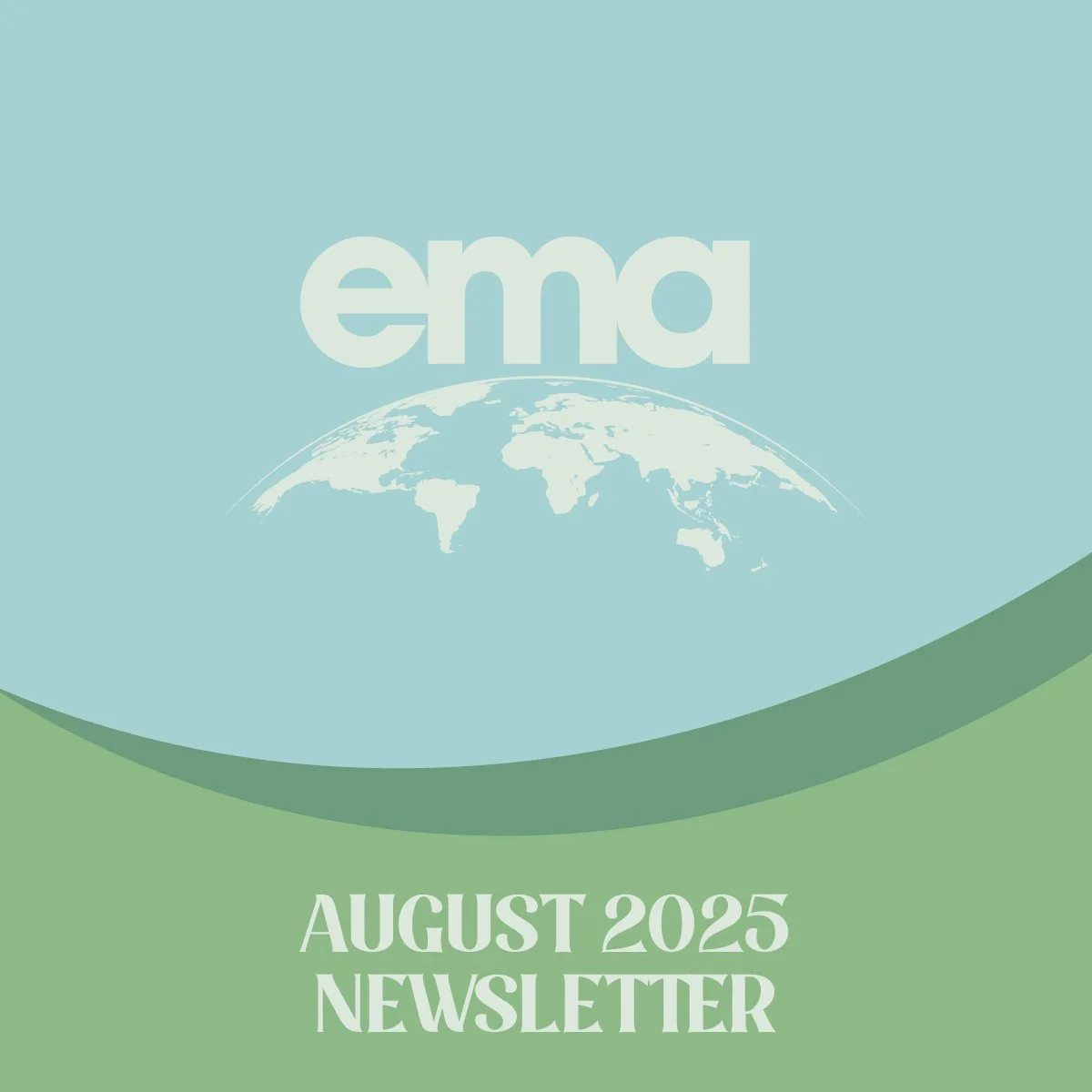August 2025 Newsletter
At EMA, we frequently discuss sustainable production through our EMA Green Seal, but did you know that sustainability can also begin on paper? Writers play a critical role in transforming popular culture and media into a force for good. From Wall-E to The Lorax, media is at its most impactful when it’s telling an engaging story with a moral compass. At our annual EMA Awards, we honor these writers and creators, encouraging them to incorporate environmental stories and solutions into their scripts. For this reason, we are thrilled to share our conversation with writer/producer Arielle Díaz. We hope this insightful conversation encourages you to pick up a pen and write the next EMA-nominated screenplay.
Arielle Díaz is a Peabody- and GLAAD-nominated TV writer and producer from Chicago, raised by her Mexican immigrant grandparents. She most recently wrote on Season 2 of With Love (Prime Video), which earned a GLAAD nomination. Her other credits also include Gentefied (Netflix; Peabody- and GLAAD-nominated, with one of her Season 2 episodes named one of IndieWire’s Best TV Episodes of 2021), The Last Man on Earth (Emmy-nominated), and Big Shot (Disney+—no nominations, but John Stamos’s hair deserved one). Arielle writes for underestimated girls with oversized glasses, oversized feelings, and oversized dreams. She’s also a former Googler and a new angel investor passionate about wellbeing and clean beauty—though her grandparents still mostly just want to know if she’s eating enough.
We’ll start from the beginning. What inspired your environmental stewardship?
It started with food. When I got sick with chronic health issues a few years ago, I had to completely rethink how I was living—starting with food. Paying close attention to what I ate revealed how significantly it affected my energy, digestion, and overall health and well-being. That curiosity led me deeper into the origins of our food and how it’s grown. I learned about the history of industrialized farming and monocropping practices, and how those systems strip the soil of nutrients and destabilize entire ecosystems. It also makes our entire food system extremely vulnerable to natural disasters and unstable economies, making it an unsustainable way to continue.
That’s when I started exploring regenerative farming and learning about food sovereignty. Just this summer, I visited a farm in Puerto Rico that's working to reduce the island’s high dependence on imported food. Approximately 80% of Puerto Rico’s food is imported from the mainland U.S. Seeing firsthand how farmers there are rebuilding resilience through local agriculture made a huge impression on me and planted a seed for what’s possible.
In my daily life over the last three years, I’ve made small but consistent choices, such as sourcing eggs, meat, honey, and produce from regenerative farms, building relationships with farmers, and asking questions about their practices. It began to heal my own body, and it has grown into the way I live: more intentional, connected, and conscious of the ripple effects of what I consume and how it is grown.
You’re a Peabody-nominated TV Writer and producer. How does your passion as a writer intersect with your love for the environment?
Right now, I’m drawn to stories with themes of inheritance. Not just in the obvious sense of money or land, but in the invisible things we inherit—family patterns, cultural memory, even illnesses that can be read as the body’s form of self-protection. That has naturally led me to explore how inheritance connects to the environment: how the systems we’re born into, such as our food systems and land use, become a part of our personal story and our family systems, whether we choose them or not.
I’m actually in Portugal at a writing retreat as I say this, immersed in research and studying genre as a tool. I’m new to genre as a tv writer so I’m geeking out a bit because it’s a literary device that lets you give interesting form to something abstract—like a haunting force in the woods beyond a family farm standing in for the unease of living inside systems too big to fight (like American agribusiness or corporate greed for example), and then filtering it through a very human, character-driven lens. For me, that’s the intersection right now: excavating the heart and guts of a character’s micro story while using genre to illuminate the larger macro point.















